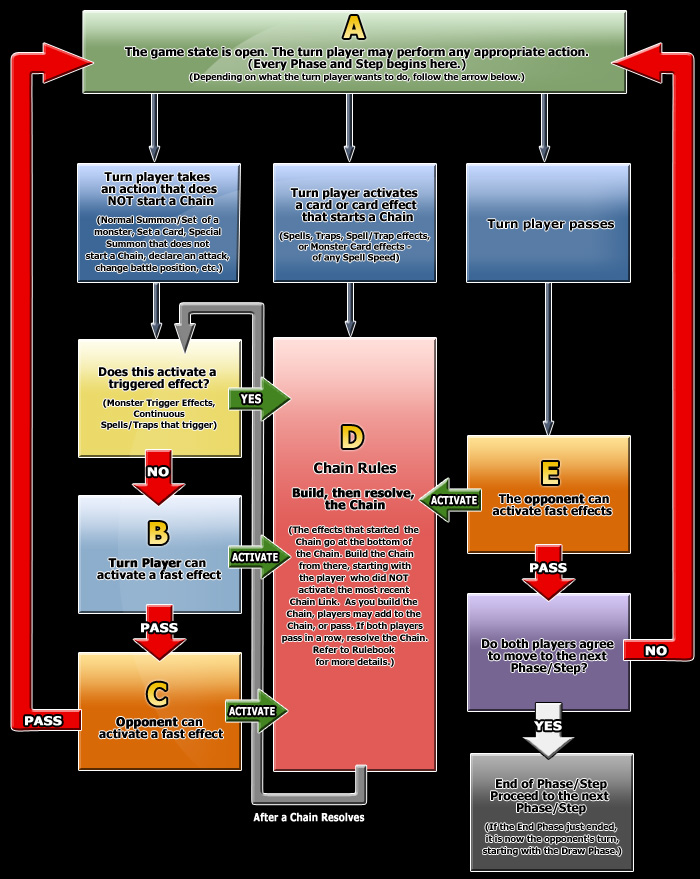I'm confused about on-summon trigger effects. Consider this scenario:
Opponent has a card on the field, with the effect
When your opponent Summons a monster: ...(e.g. Trap Hole or Evolzar Solda. Note the when in the effect.)I Summon a monster that has the effect
If this card is Summoned: ...(e.g. Infinitrack Anchor Drill).Because I am the turn player I get to activate effects first. I activate my monster's effect.
(The part I'm asking about) My opponent want to activate their effect, but, if I understand correctly, they CAN NOT since my effect started a chain, and the last thing that happened in that chain was that I activated my effect, not that I Summoned a monster.
This is how I understand it. I've gathered this from looking around the internet. One relevant quote from the wiki is this (emphasis mine):
During the Summon response window, due to Fast Effect Timing, first the turn player must activate any compulsory effects that they triggered, such as "Summoning Curse" and "Summoner Monk", then their opponent must do the same. Then, the turn player has the opportunity to activate optional effects like "Torrential Tribute" and "Armageddon Knight"; if the turn player passes, then the opponent also has the opportunity to activate these effects. If at any point either player starts a Chain, standard Chain rules are followed.
Since a Chain is started when I activate my effect, my opponent cannot activate their effect in response to my Summon since it misses timing.
I imagine that the order is this:
- The game state is open (my Main Phase 1).
- Turn player takes an action that does NOT start a Chain (my Summon).
- Does this activate a triggered effect? (Yes, my monster's effect).
- Chain rules (opponent can't activate effect, since they would be chaining it to my effect activation, not my Summon).
A good answer needs sources to relevant rulings (if any). Preferably directly from Konami, but links to a wiki/trusted source is "good enough" if no Konami quote can be found. If I'm wrong and my opponent can chain to my Summon the answer should explain how and why. Edge cases should be included too, if there are any (e.g. a Summon that starts a chain vs one that does not).
